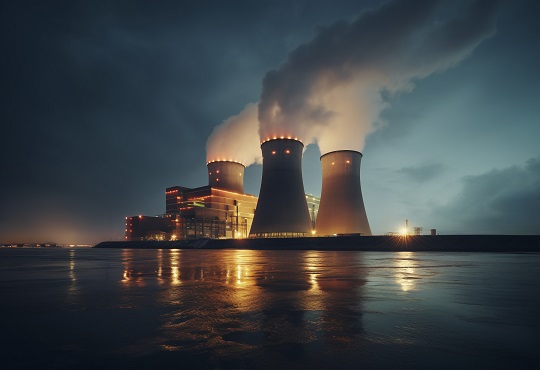
Meta Turns to Nuclear Power to Meet Growing AI Energy Demand
CIOTech Outlook Team | Wednesday, 04 June 2025, 12:59 IST

- Meta secures 20-year nuclear power deal to fuel AI growth at Clinton plant.
- Clinton Clean Energy Center’s output expands by 30 megawatts, powering 30,000 residents.
- Agreement preserves 1,100 jobs, generates $13.5 million in annual tax revenue.
Meta, owner of Facebook, has signed a 20-year contract with Constellation Energy to make sure its nuclear energy needs from the Clinton Clean Energy Center are met, given the rise in electricity demands from its AI and computing businesses. On Tuesday, the deal was announced, joining a rising practice of tech companies working with nuclear energy providers to power their operations while being sustainable. The details of the financial agreement were not made public.
Initially, the Clinton Clean Energy Center was shut down in 2017 because of loses, but it faces a longer closure after being supported by Illinois’ zero-emission credit program till June 2027. Establishing this partnership will add 30 megawatts to the plant’s clean energy which could power the homes of 30,000 residents for one year, said George Gross, professor at University of Illinois. The project is set to ensure that 1,100 jobs remain in Eufaula and generate about $13.5 million yearly in tax income. Right now, the plant supplies power equal to that used by about 800,000 American households.
“Securing clean, reliable energy is necessary to continue advancing our AI ambitions,” said Urvi Parekh, Meta’s head of global energy.
This agreement reflects a broader movement among tech giants to secure reliable, low-carbon energy sources to support data centers and AI platforms while meeting commitments to reduce greenhouse gas emissions.
Also Read: Zilch Debuts Physical Card, Switches from MasterCard to Visa
These efforts aim to streamline regulations and expand subsidies to facilitate nuclear development. The U.S. has not built a next-generation reactor commercially, and the only two new large-scale reactors constructed in nearly five decades, located in Georgia, were completed years behind schedule and $17 billion over budget. Gross pointed out that the decline in spending on transmission systems occurs even as energy consumption is increasing and told officials it is vital to improve the system.
Tech companies are trying to rely less on fossil fuels by adding other energy types to their energy mix. Amazon, Google, and Microsoft are investing in solar and wind power since these forms do not produce greenhouse gases, in addition to what they are doing with nuclear.
With data centers and AI use expanding, tech industry leaders are drawn to nuclear energy not only because it is reliable and reduces greenhouse gases, but also because it is hard to meet big goals like the U.S. target to quadruple nuclear production.
CIO Viewpoint
Why Foolproof Facial Recognition Is Key Against...
By Joseph Sudheer Thumma, Global CEO & MD, Magellanic Cloud
National Technology Day 2025: Powering Progress...
By CIOTech Outlook Team
Aligning IT Roadmap with Business Objectives: A...
By Subhash singh Punjabi, CISO & Head Enterprise Architecture, Deepak Fertilisers & Petrochemicals Corporation Ltd
CXO Insights
Cloud Computing: Newer Models To Mitigate Risks
By Sumed Marwaha, Regional Services Vice President and MD, Unisys India
How Right Tools Create Easy Consumer...
By Ganesh Lakshminarayanan, COO, Capillary Technologies
Cloud Data Services Sparking Change In The...




.jpg)




